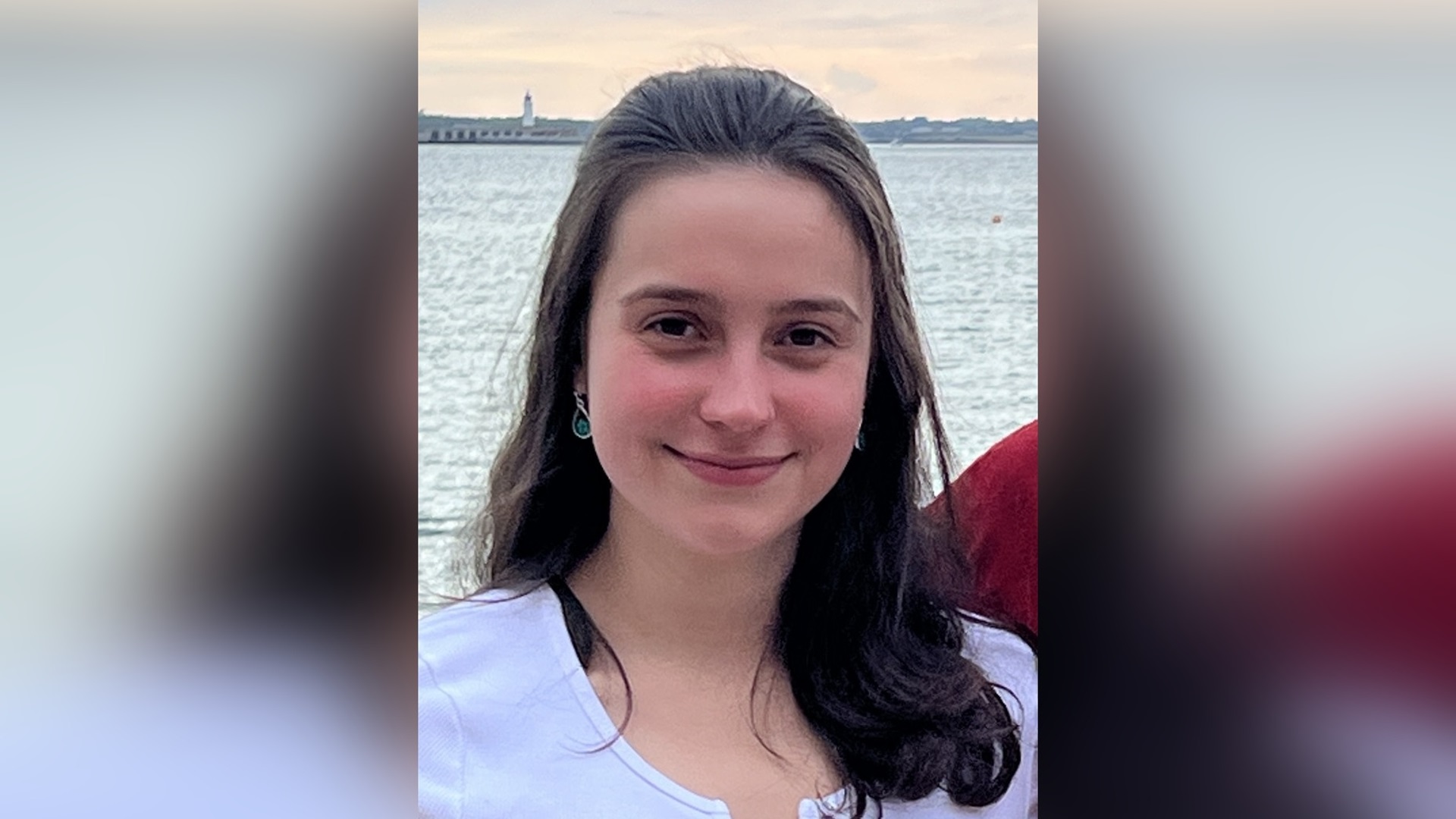Sophie Norman had just turned 16 when she was diagnosed with the blood cancer acute lymphoblastic leukaemia (ALL) in the summer of 2021. Now aged 19 and cancer free, she is in her first year at Bath University, studying Biochemistry. She is looking forward to a career in medical research, inspired by the scientists she met at The Institute of Cancer Research (ICR) during a work experience placement in our Centre for Cancer Drug Discovery.
In August 2021, I was experiencing shortness of breath and fatigue. I had put my lethargy down to the fact that I was having a lazy and relaxing time off school over the long summer holiday. But after a few weeks, when the breathlessness worsened, I went to see the GP.
I was told I had asthma, but having suffered with cold-induced wheeziness as a child, I knew that this didn’t feel the same. My mum was concerned and booked me in to see a private doctor. He listened to my chest but could not hear anything unusual, then sent me for X-rays. The X-rays revealed enlarged lymph glands in my chest and I was told to go to hospital immediately.
On arrival at University College Hospital, London, I had my bloods taken, during which time I was sick and then fainted. To be honest, I remember very little about the next few days. What I do know is that I was admitted to the hospital and there was a level of urgency around my care. Within a few days, I was diagnosed with leukaemia.
A regular gift from you will help us to discover the next generation of smart, targeted treatments, so we can help more people survive blood cancer.
I knew about leukaemia. I knew it was a type of cancer. But I am a practical kind of person, a pragmatist, so I didn’t react too dramatically to the news. I just wanted to get on with it and start taking steps to get better. The doctors were very clear that it was treatable and that it was unlikely I would die, so I very much took the view that ‘it is what it is’.
'I just see my cancer as something that happened to me’
I was with my mum when I received my diagnosis and I think that throughout my treatment, this journey has been far harder for my parents than it has been for me. While they have both been brilliant and supportive, I know that they have struggled. They have been far more emotionally affected by the experience than I have. For me, I just got on with it.
I spent two weeks in hospital. I had a bone marrow biopsy and was put on intravenous chemo and steroids. Then I was allowed home and continued my treatment as an outpatient at The Royal Marsden. For several months, I went through extremely intense treatment, consisting of weekly intravenous chemo sessions. This was followed by a long period of maintenance chemo, taking daily tablets. In December 2023, my treatment finished, I was told I was cancer free and unlikely to face a relapse.
Generally, I was pretty lucky. Aside from one very bad infection in my port which saw me hospitalised for over a month, I didn’t experience many side effects. I was completely exhausted most of the time, did not sleep well and suffered with bad headaches occasionally, but I was not particularly sick. I lost my hair, but this was not something I struggled with.
When I was first diagnosed, we were still in the last throes of Covid, so initially I isolated to avoid getting ill. My immunity levels were very low. But after that, while I avoided large crowded areas, I was able to see people. I was due to start my A-levels in September 2021, but ended up taking that year out to focus on getting better, and started the following year instead.
These days, cancer doesn’t really cross my mind anymore. I was having six-weekly check-ups until December, but now, I am only being seen every three months. Now, I just look back and think of it as just something that happened to me.
'ICR scientists are so passionate about their work – it is incredibly inspiring’
In the summer of 2024, I took part in a work experience programme at the ICR, spending a week in the Centre for Cancer Drug Discovery. I was blown away by how passionate all the scientists were about the work that they do. Everyone believes so strongly in the discovery of new drugs and that has been incredibly inspiring to see. It has given me real confidence that in future we really will be able to defeat cancer.
My ALL diagnosis confirmed what I had previously believed anyway – that cancer research is so important. So many people are affected by cancer every day. I have had family members diagnosed with different cancers. For me, I am grateful for the treatments I have had and for the fact that they have worked. I know this is thanks to research.
I am now studying for a degree in Biochemistry and have always wanted to go into medical or scientific research. I had not previously considered cancer research – I did not want to dedicate myself to a career in this field, simply because I have had cancer. I don’t want my diagnosis to define me or define the decisions I make. However, my experience at the ICR was so interesting that it has opened my mind to the possibility of considering a career in cancer research in future.
Your support will help our researchers make more life-saving discoveries, giving people with blood cancer precious extra time with their loved ones.
Header image: Sophie Norman
